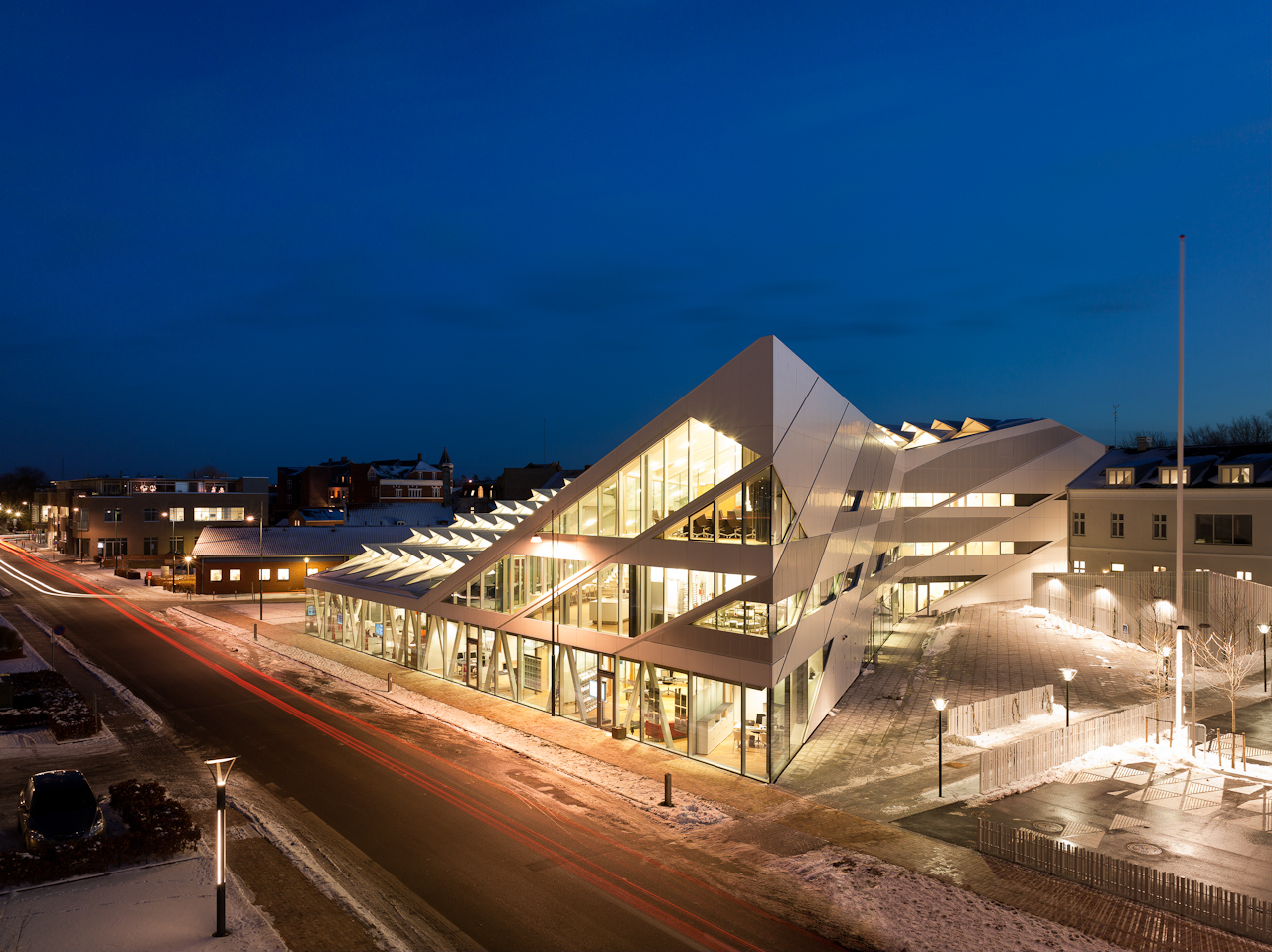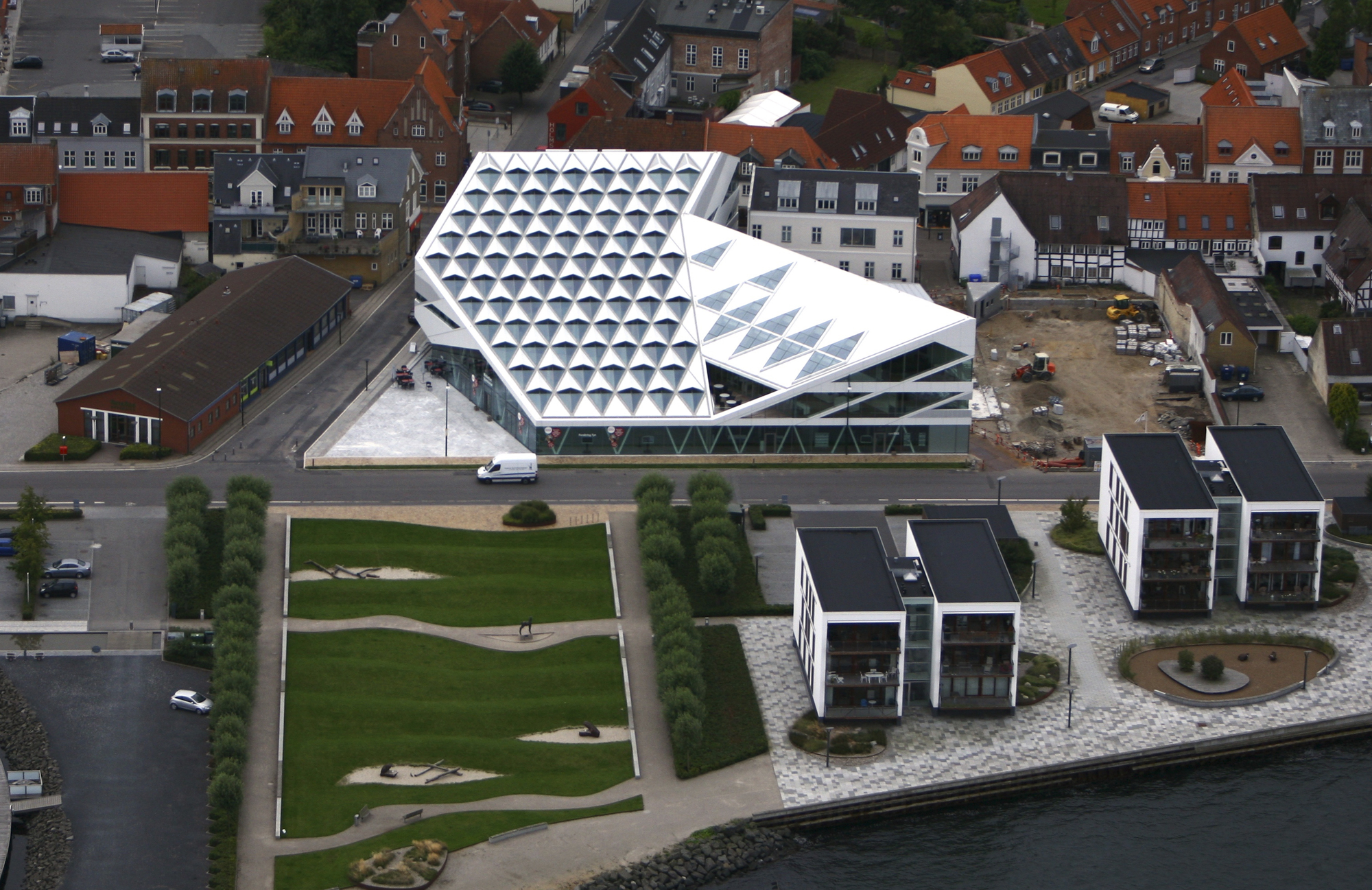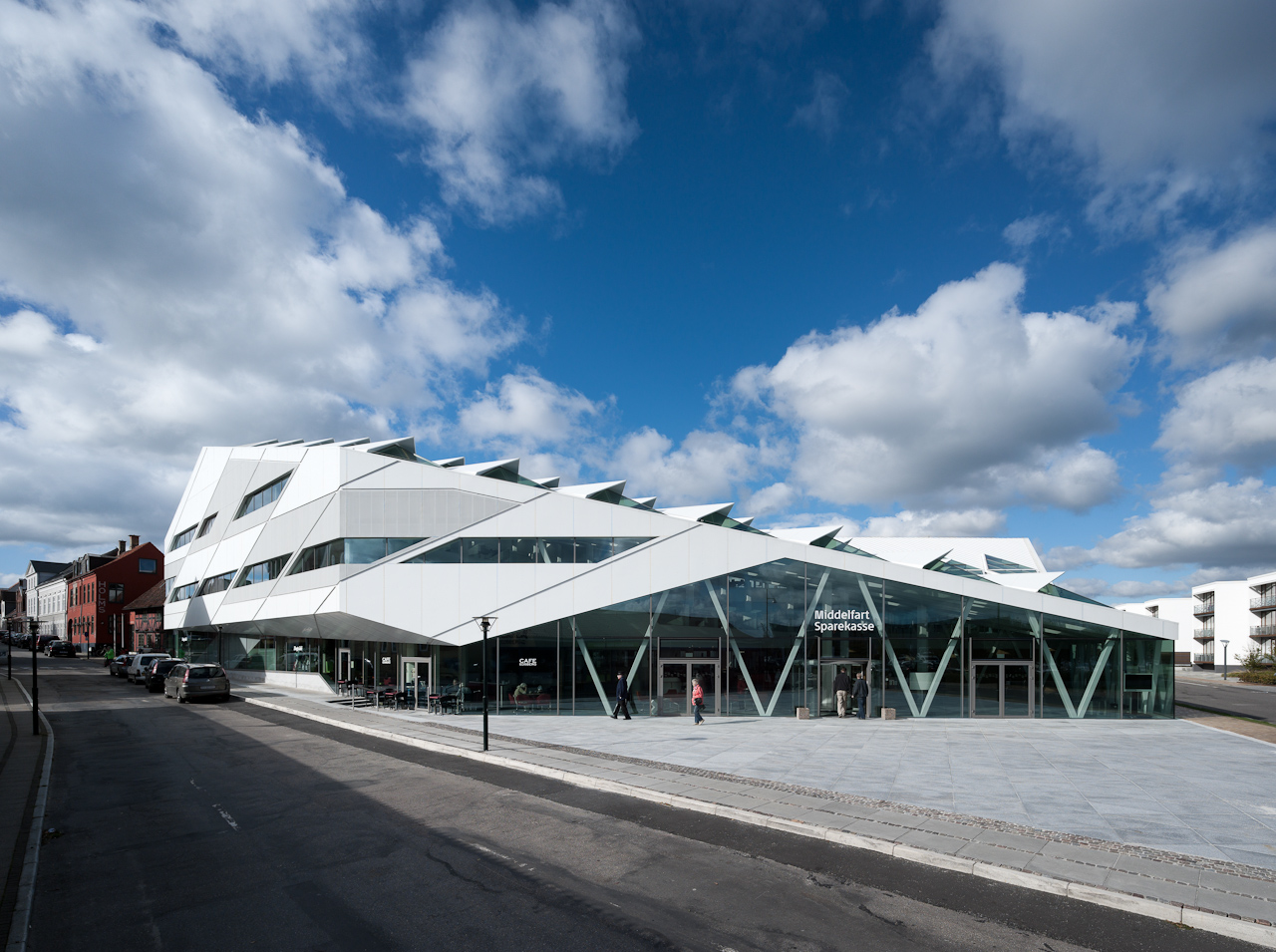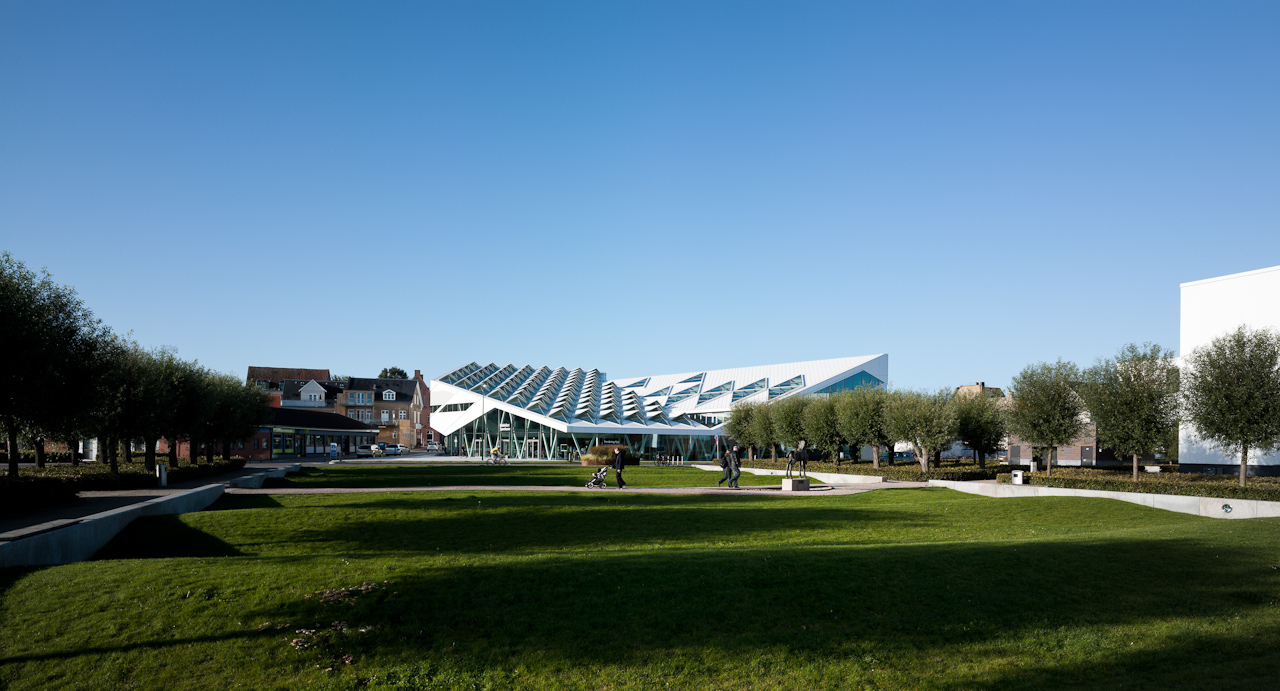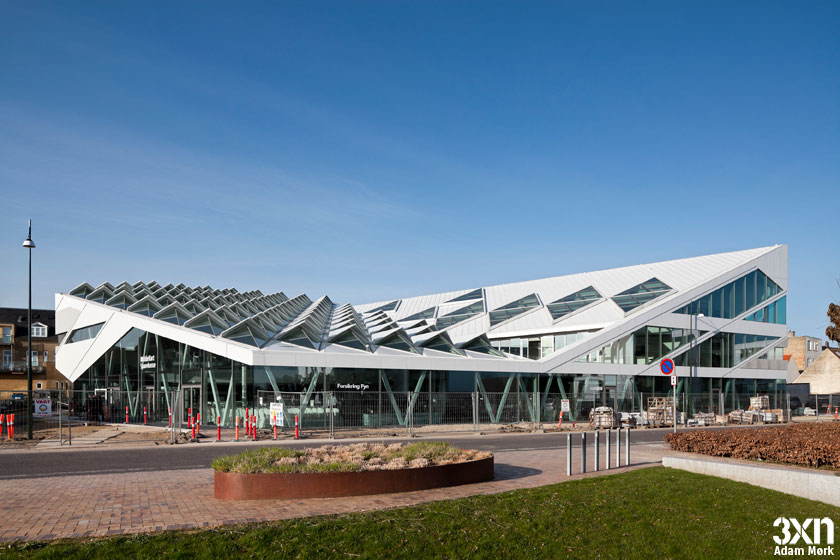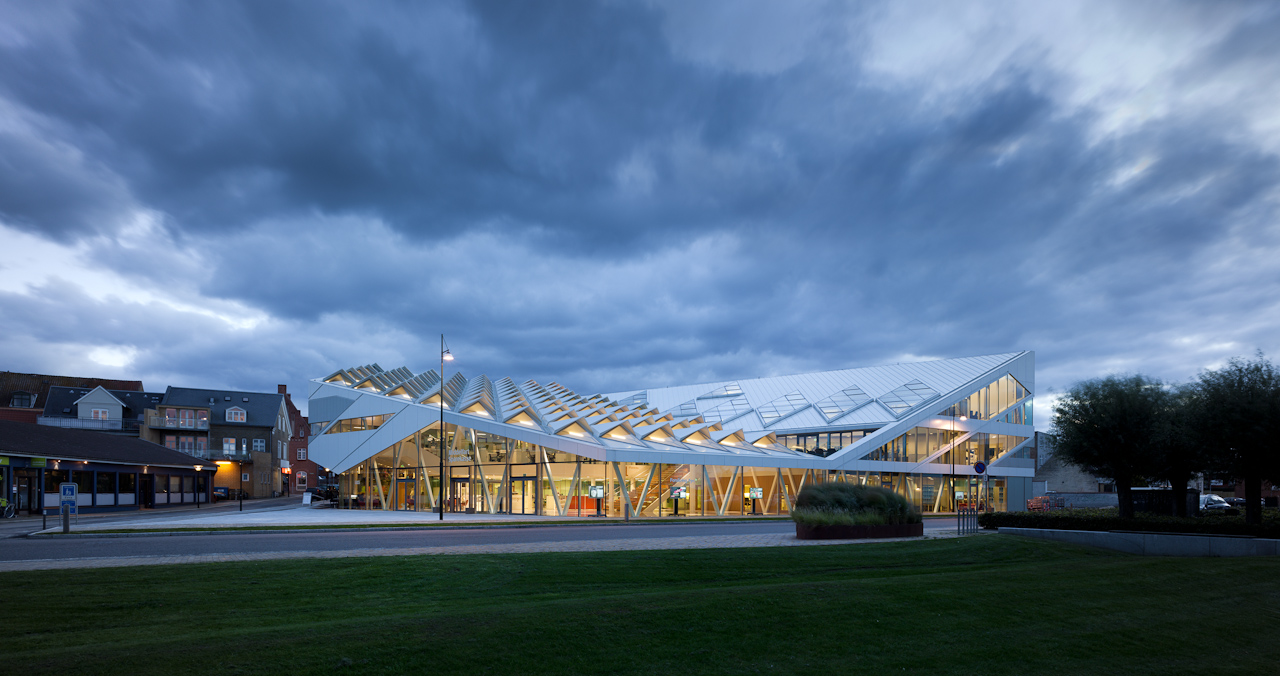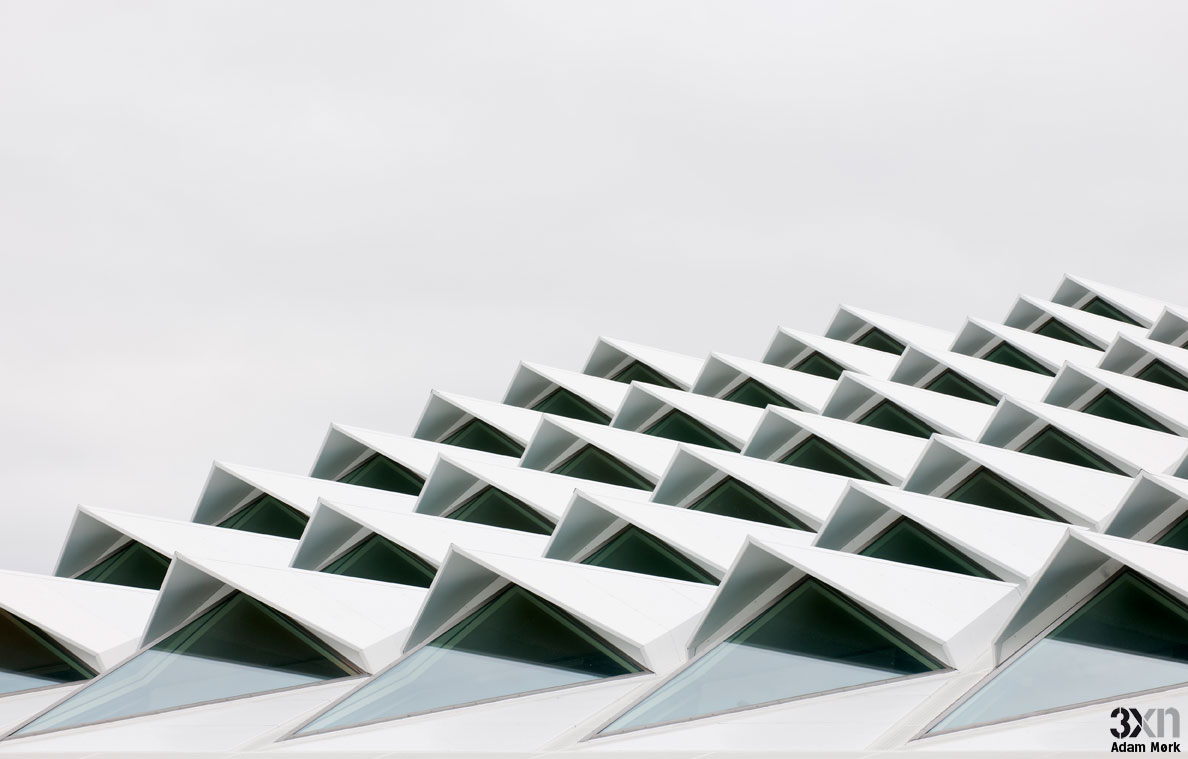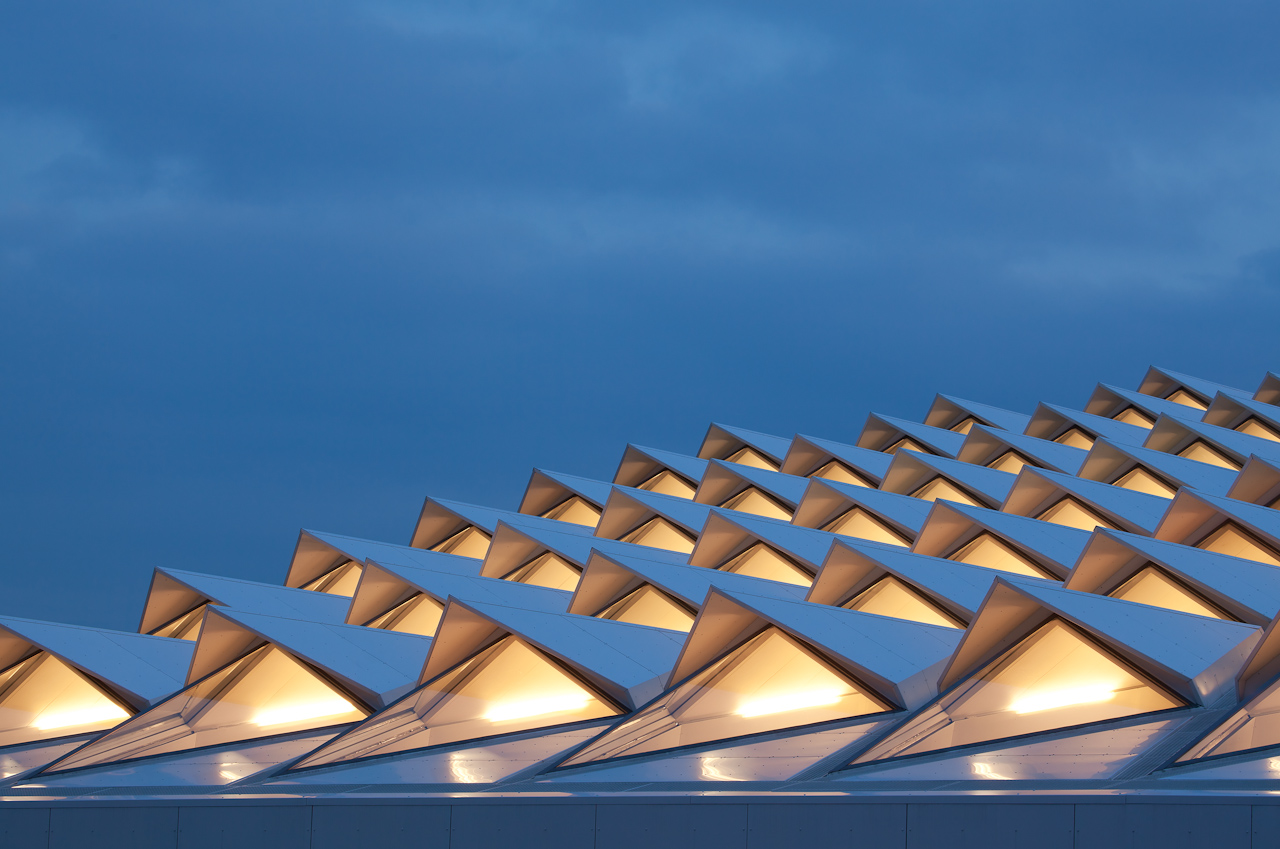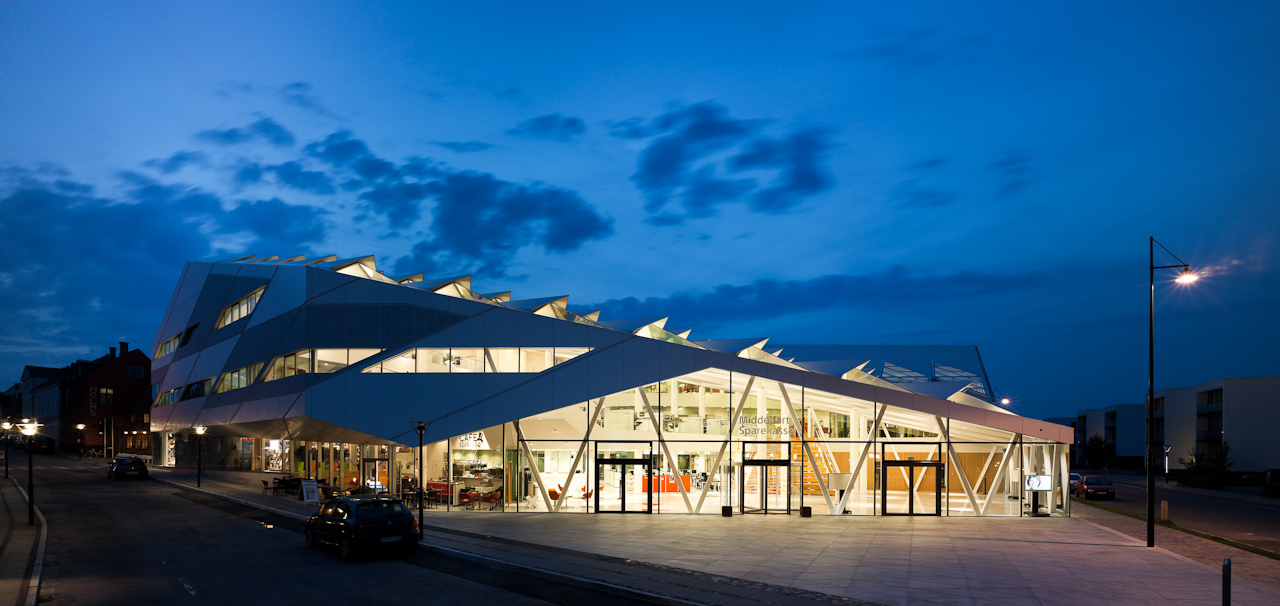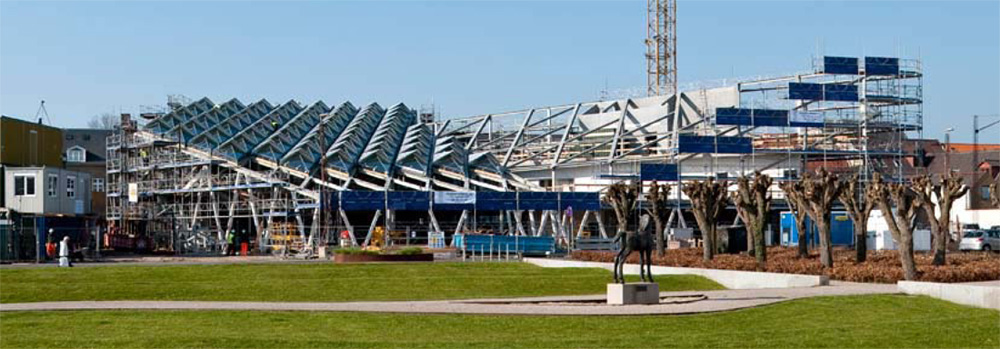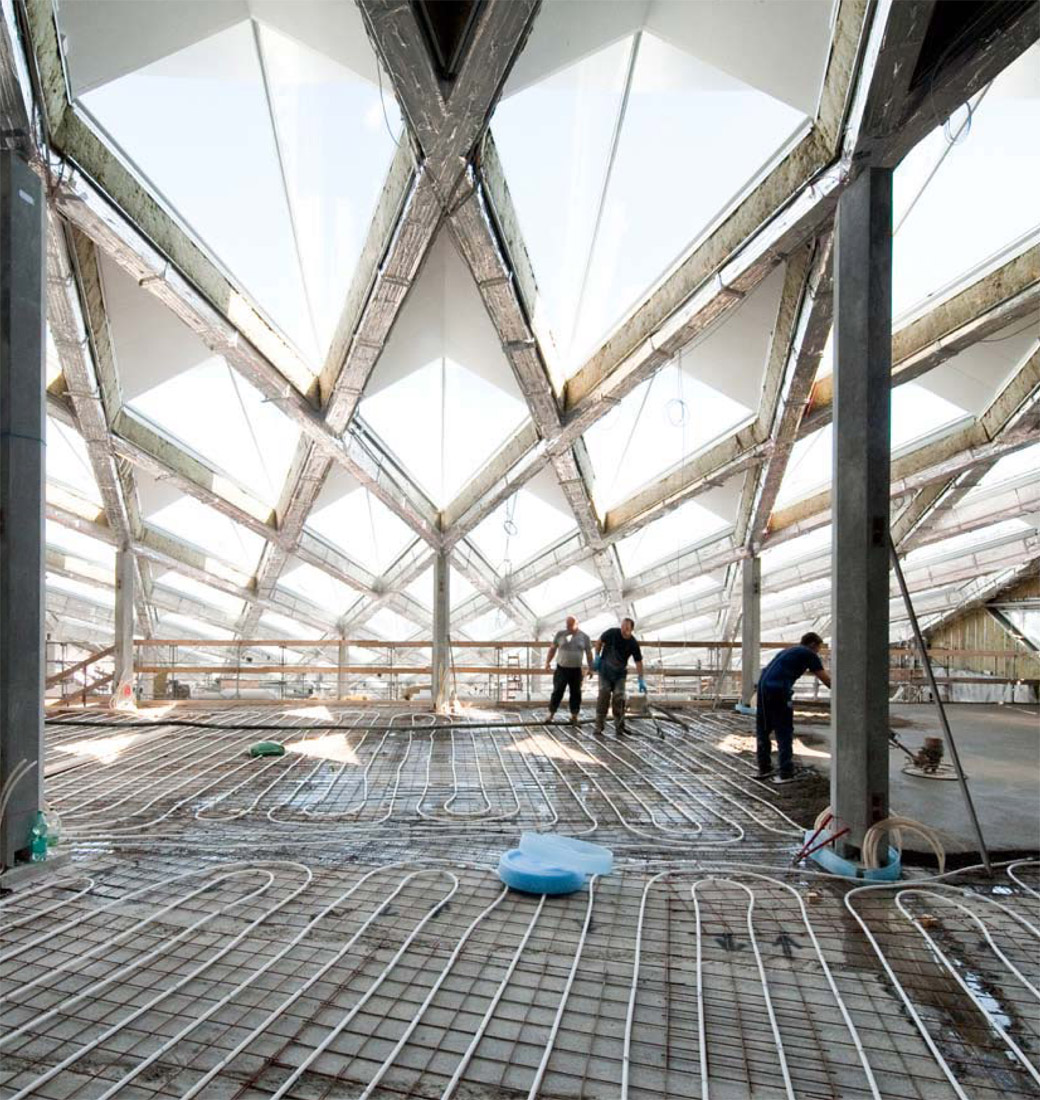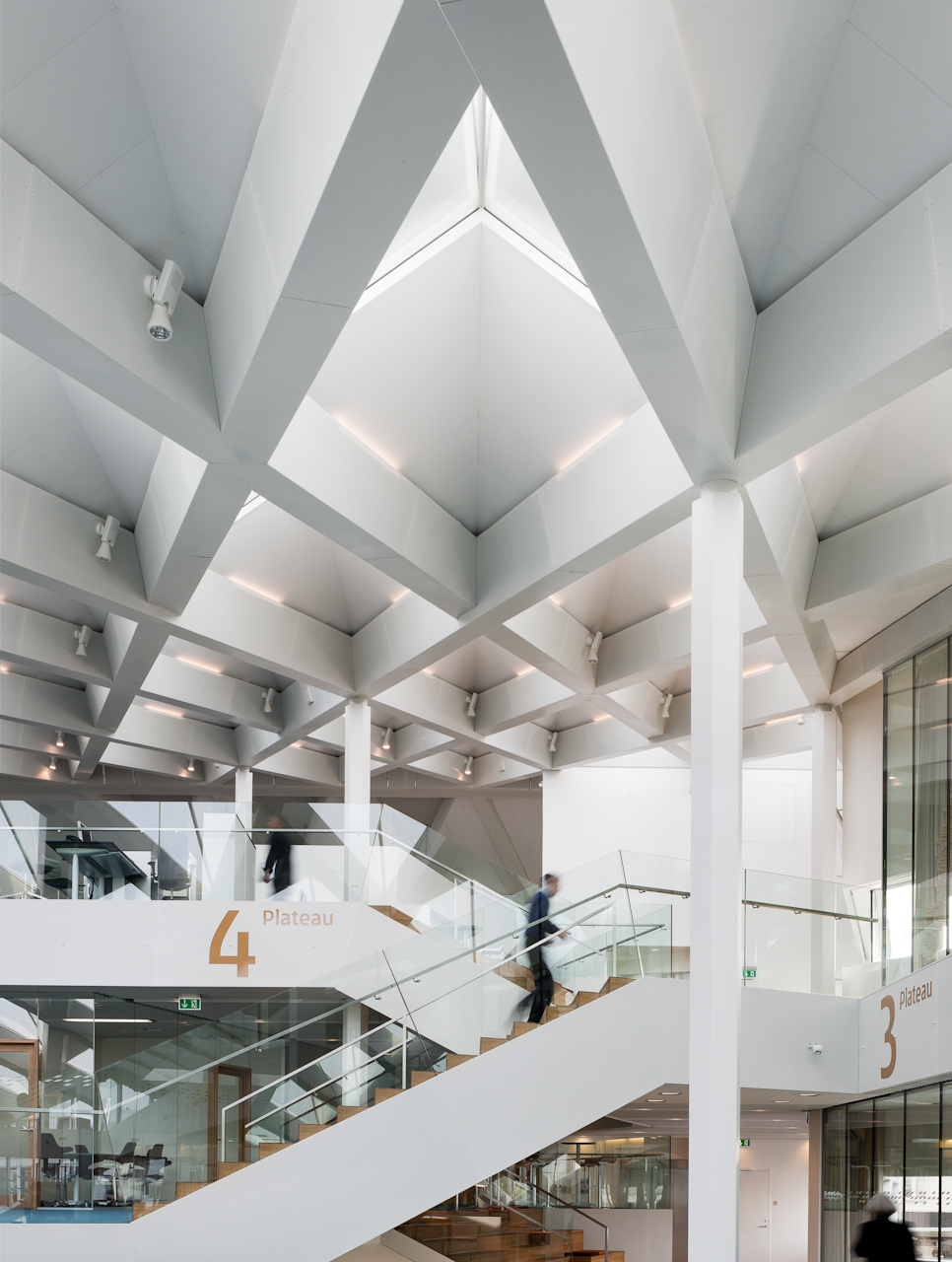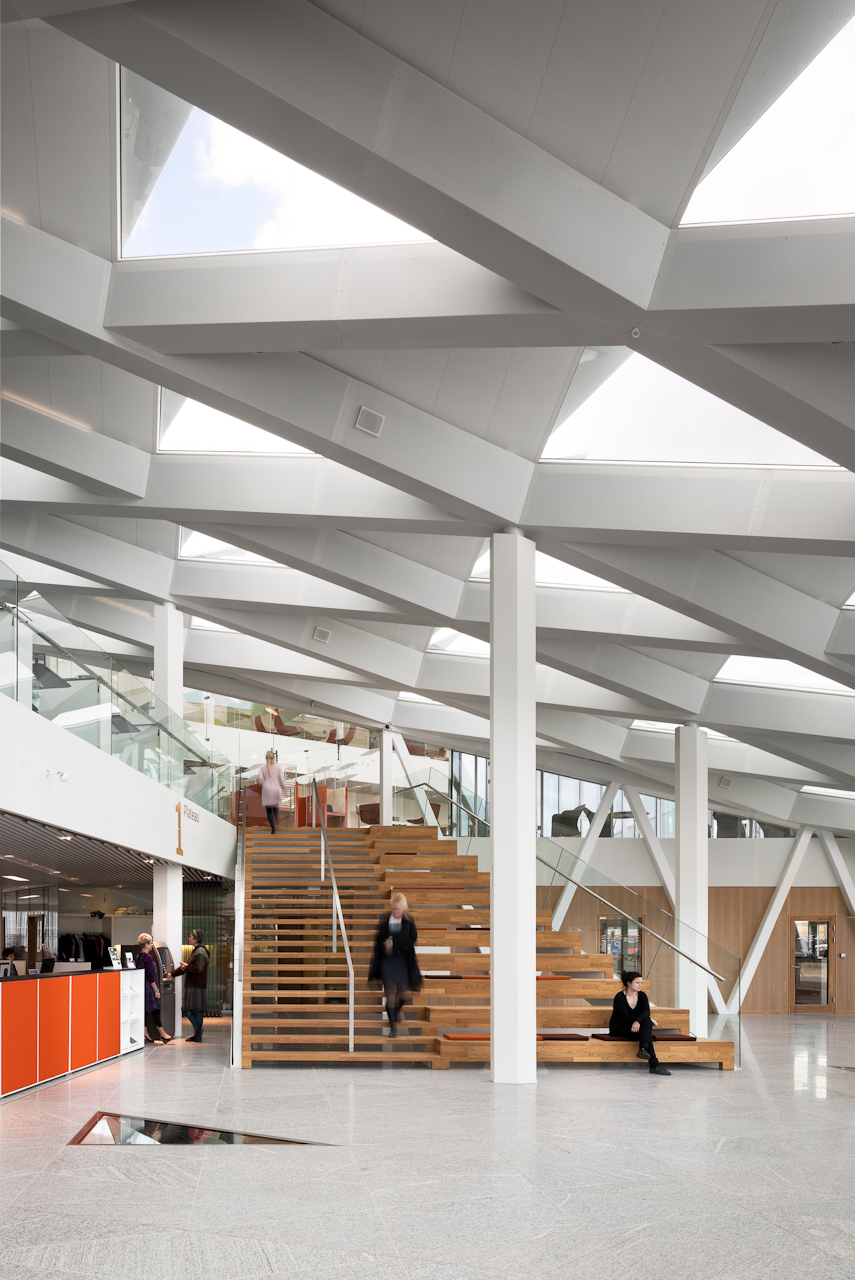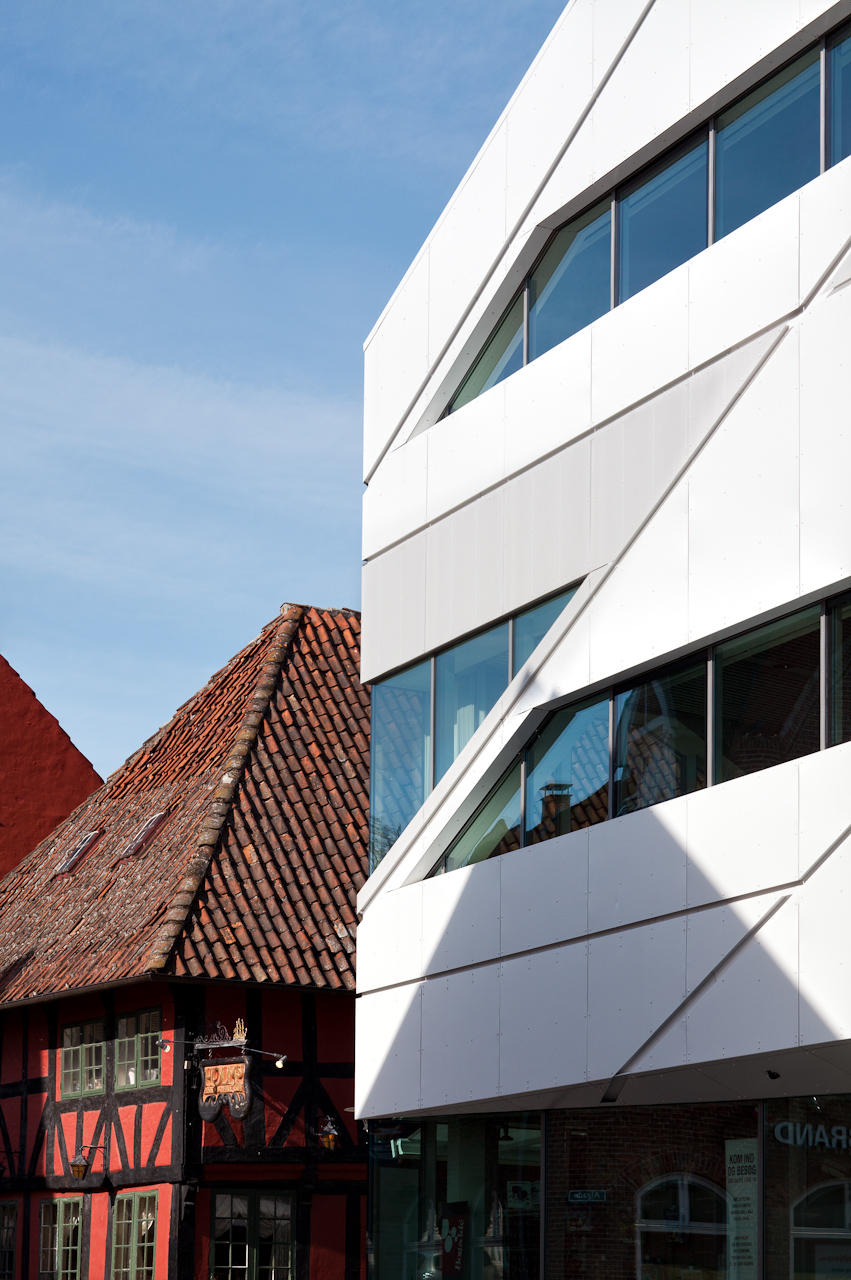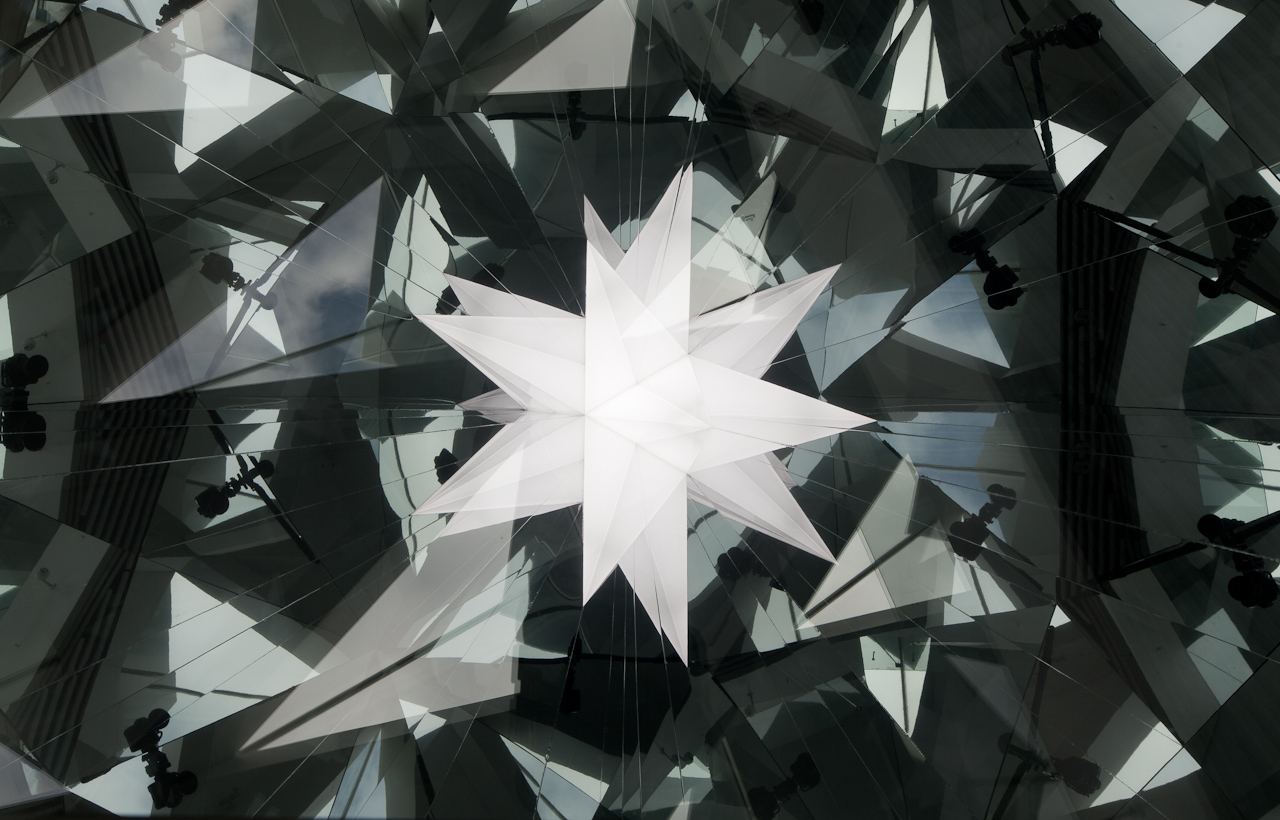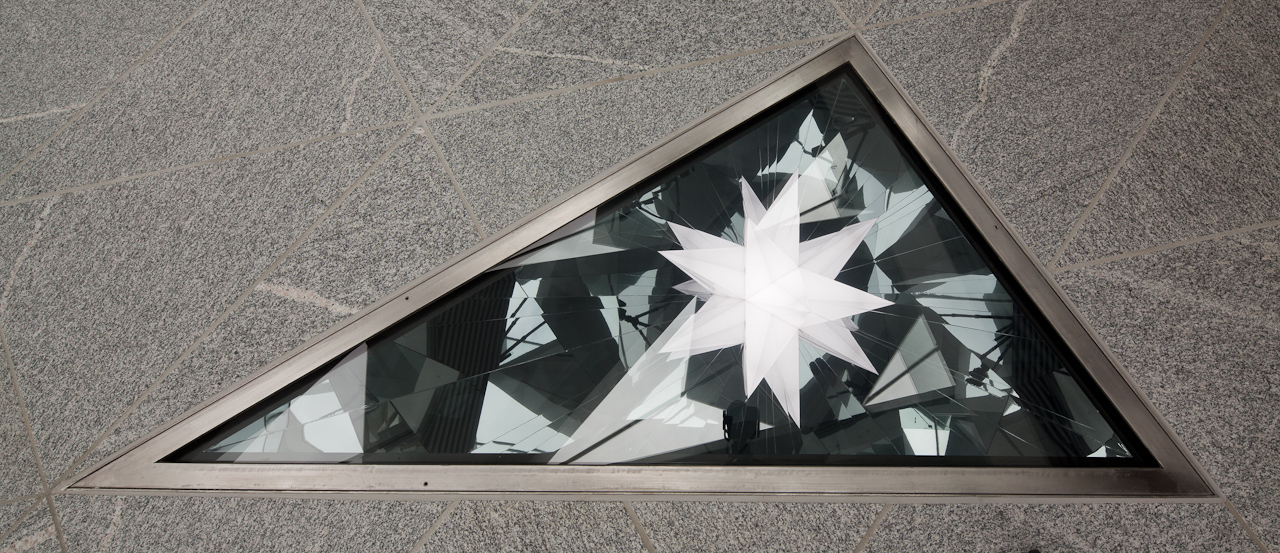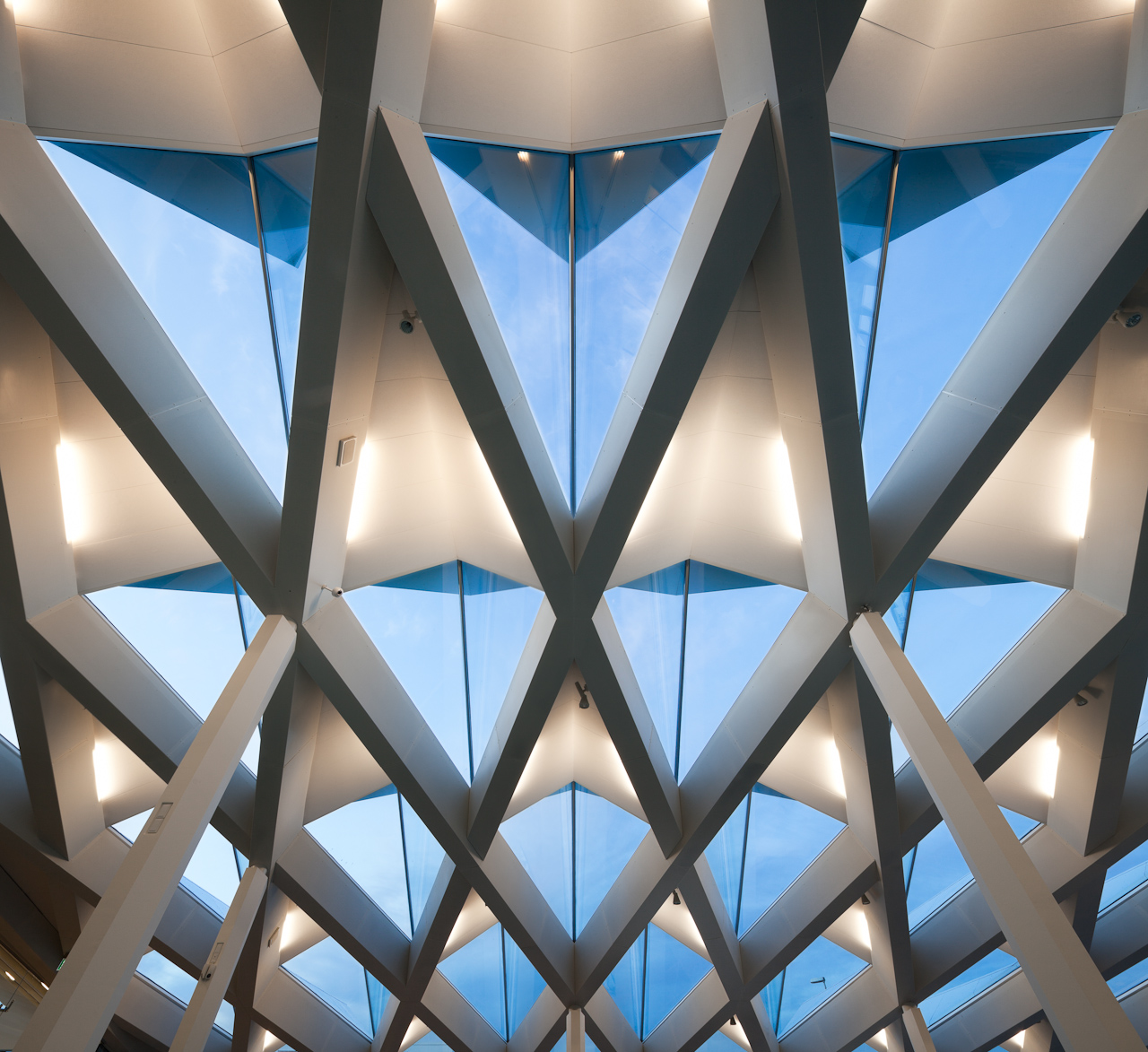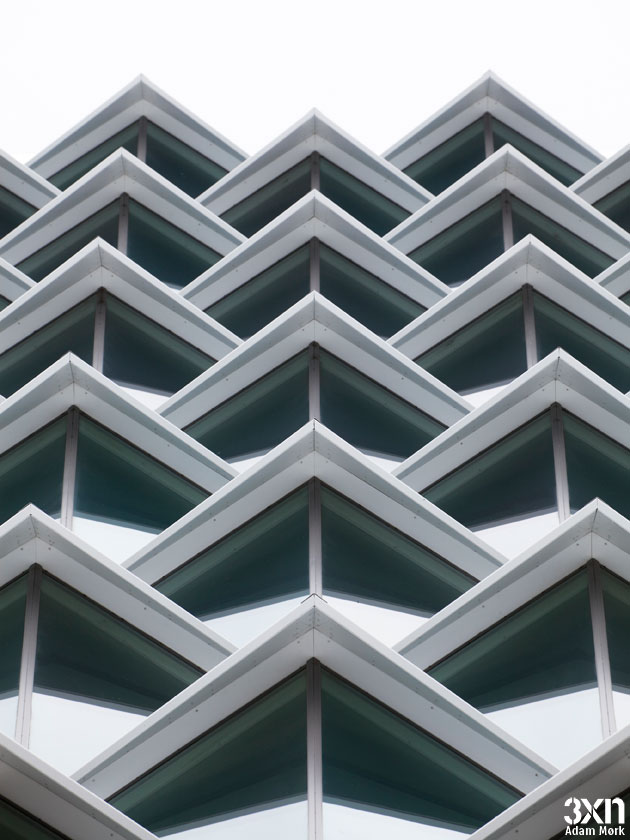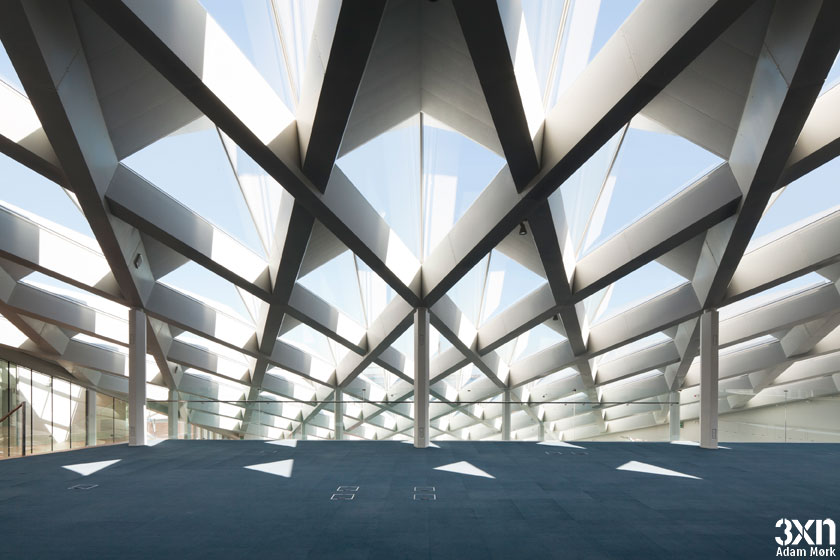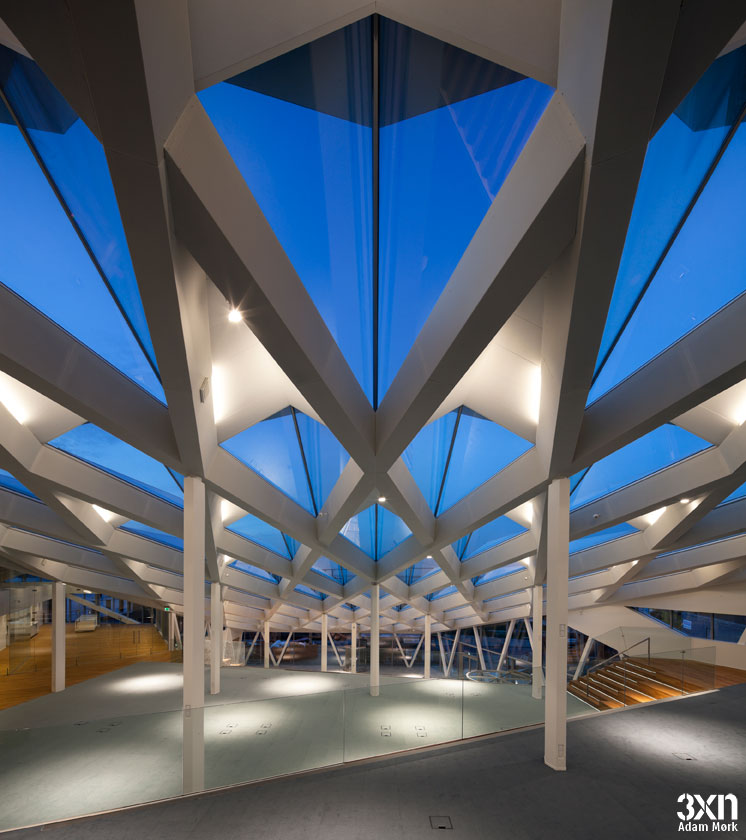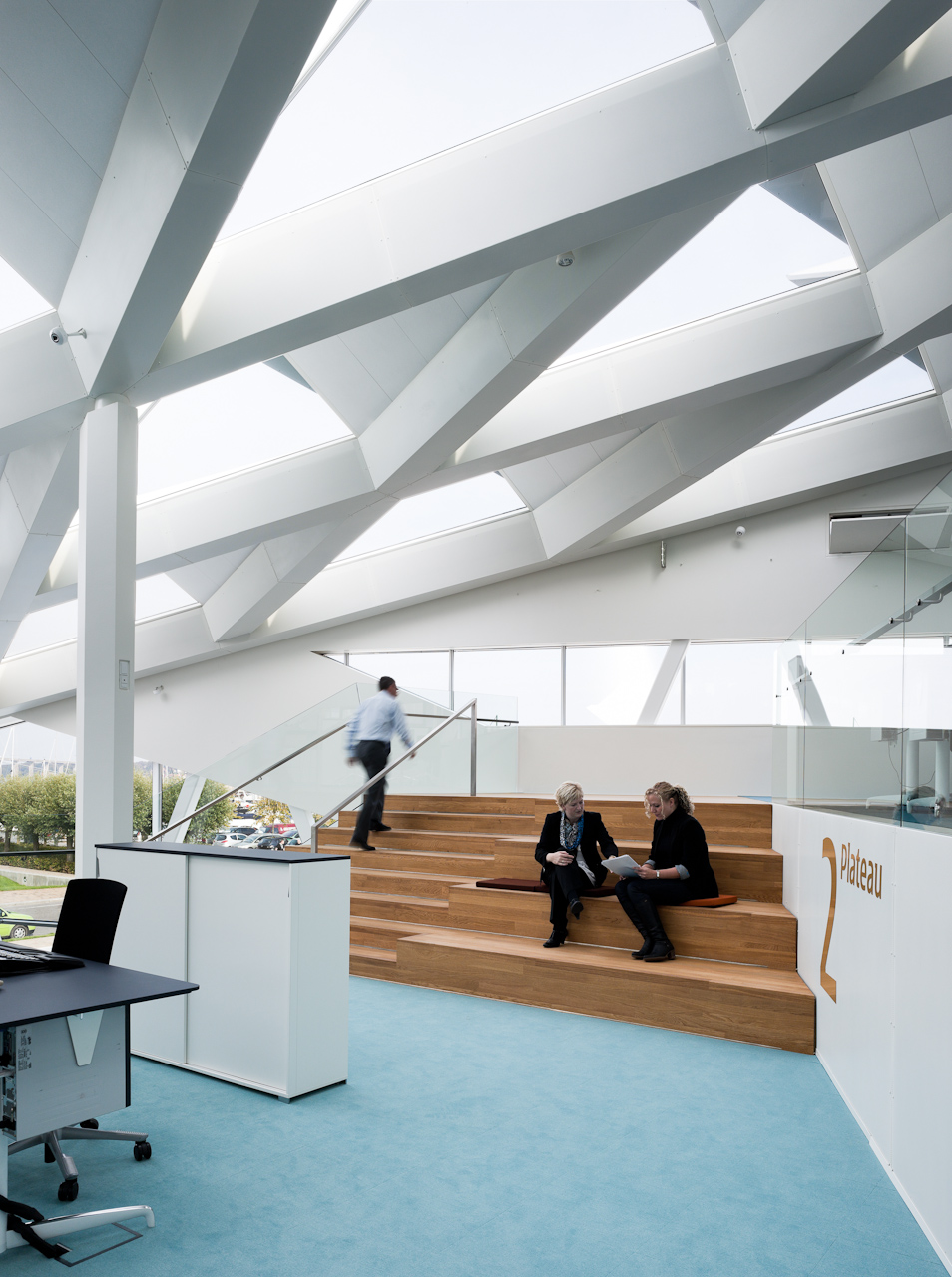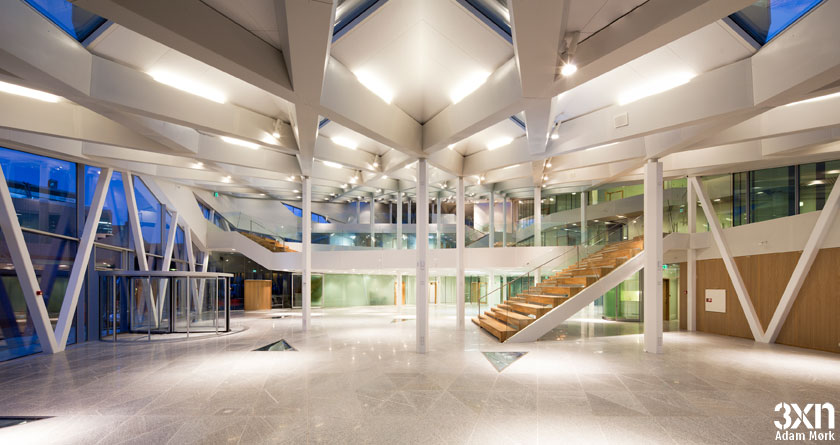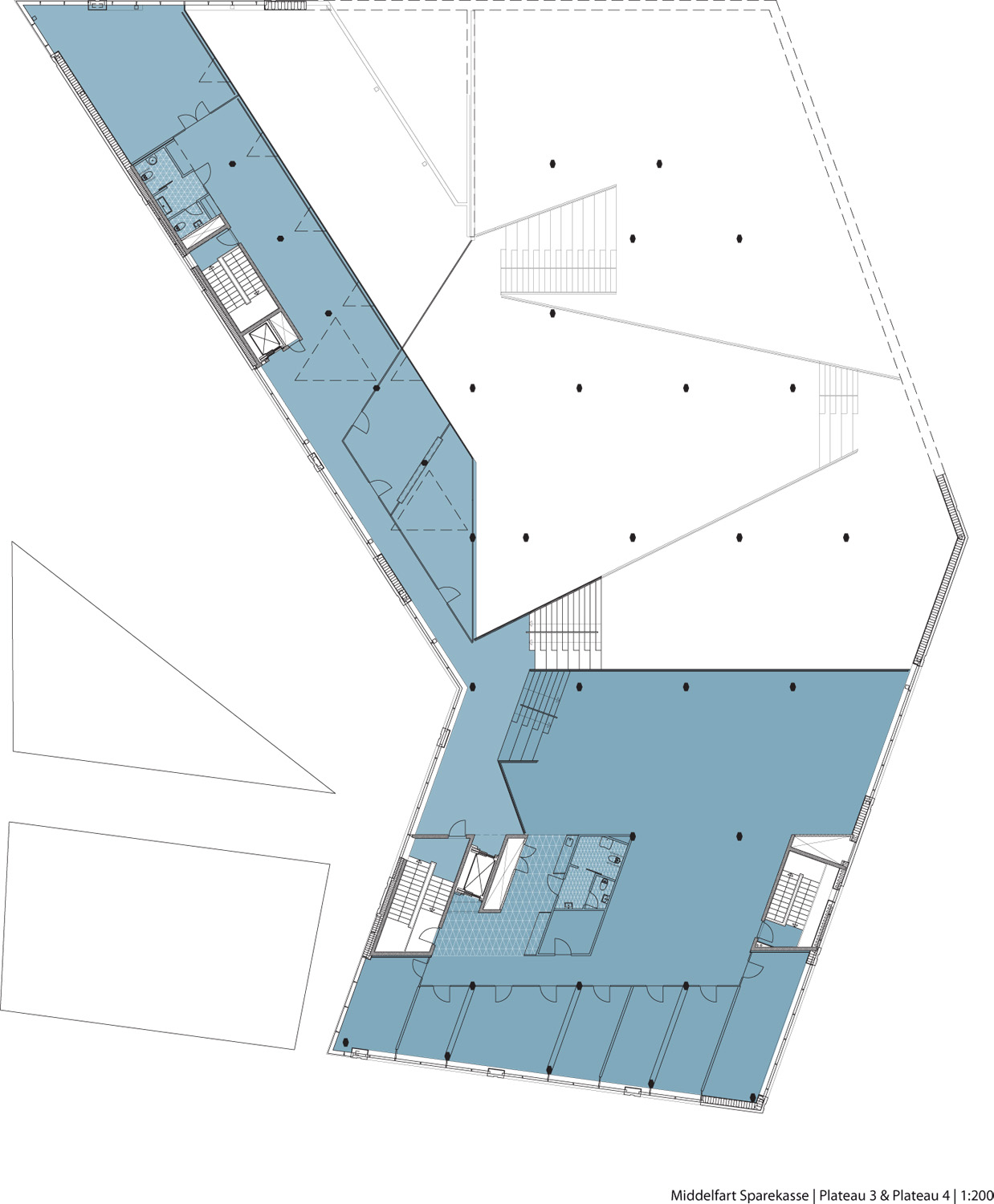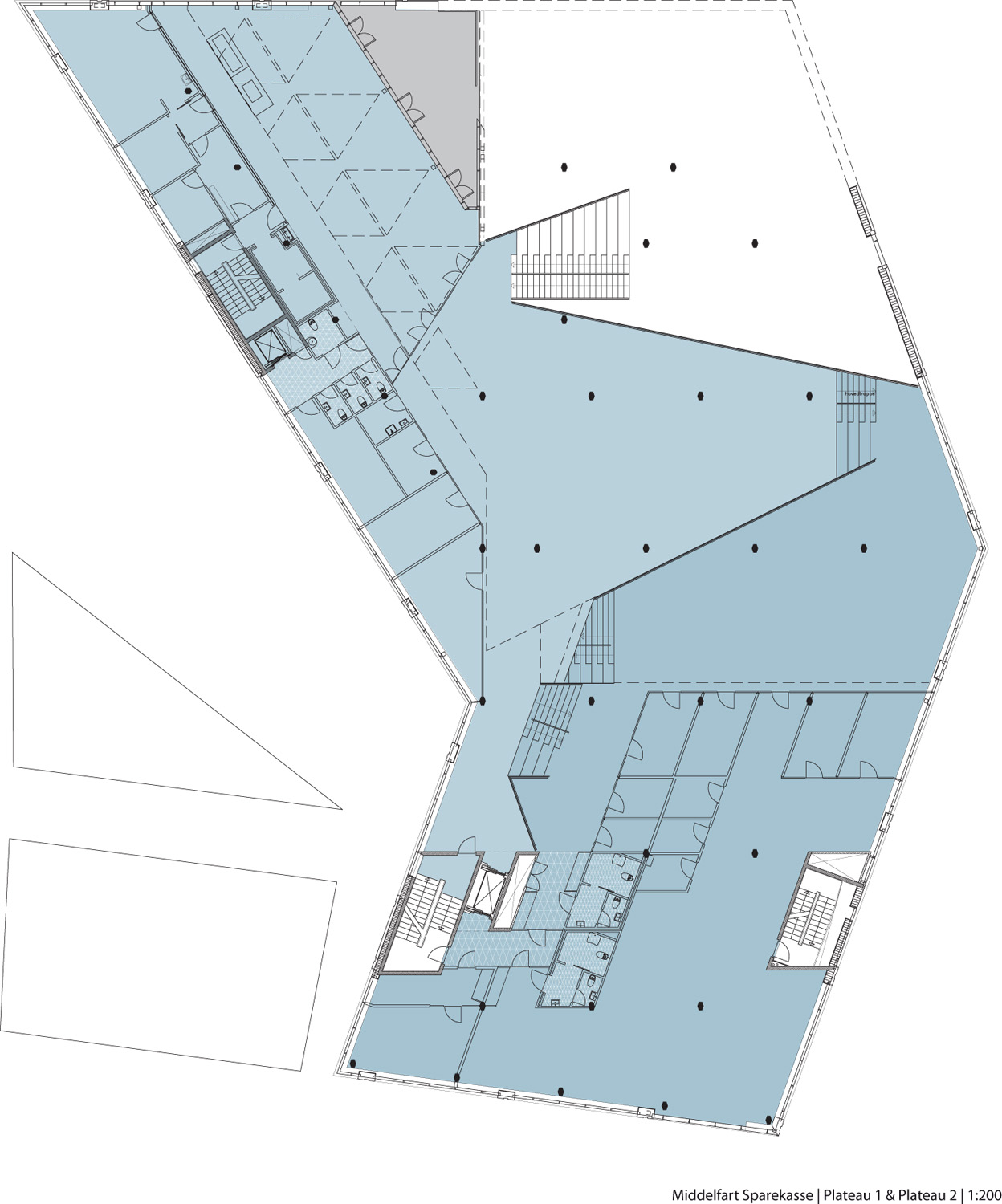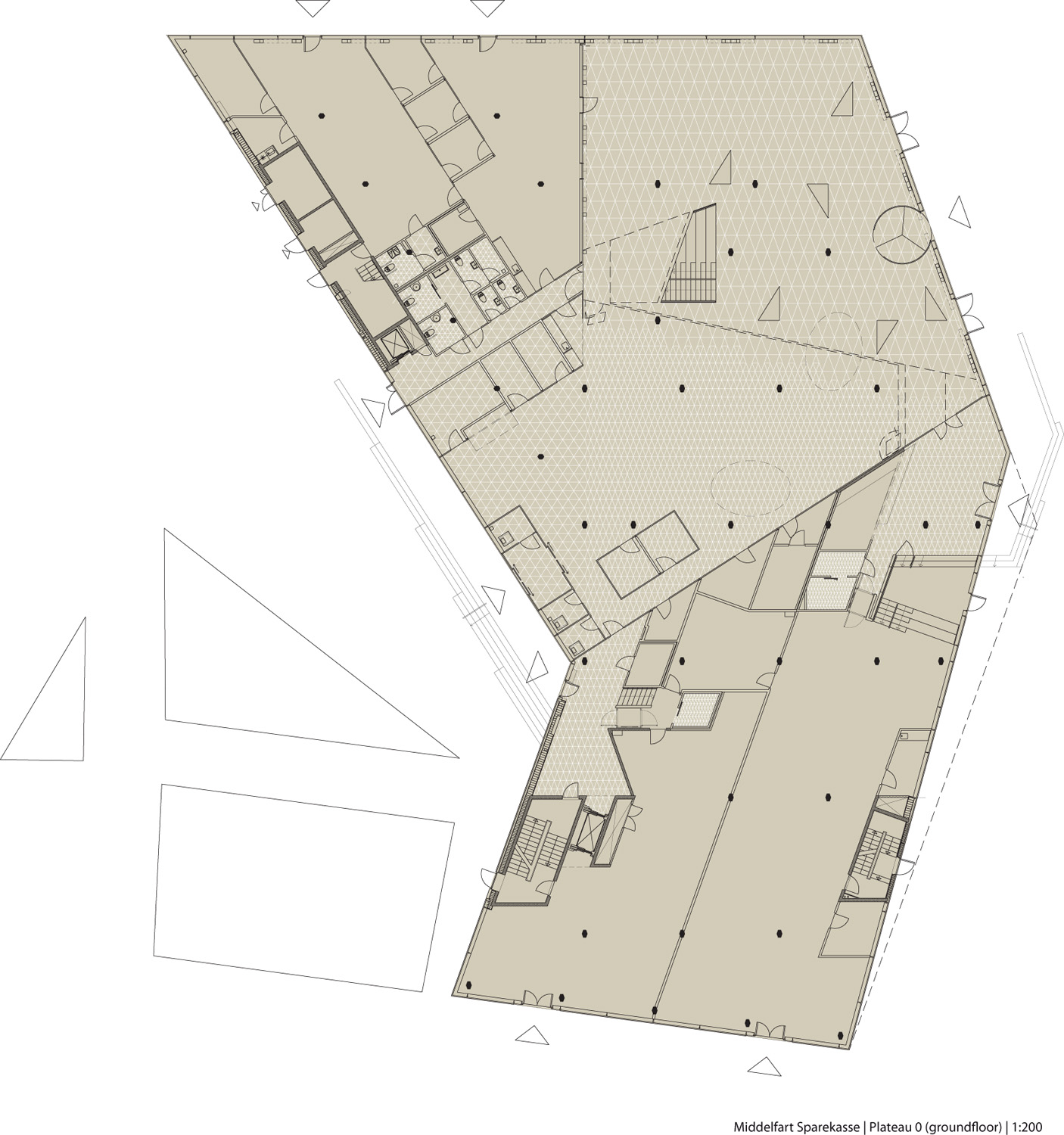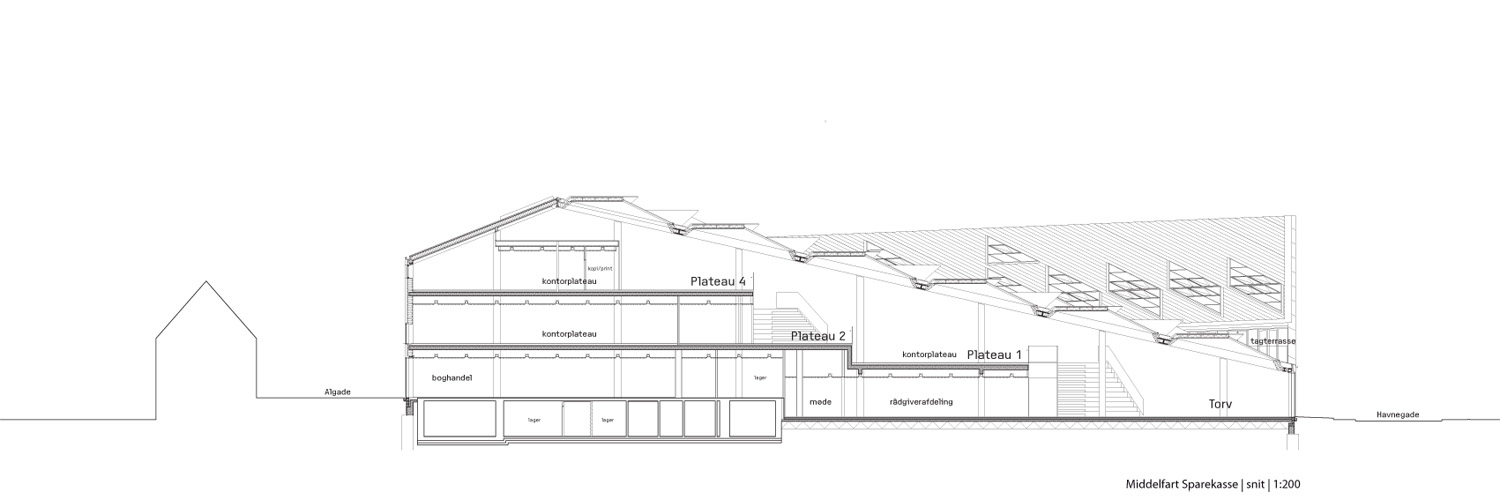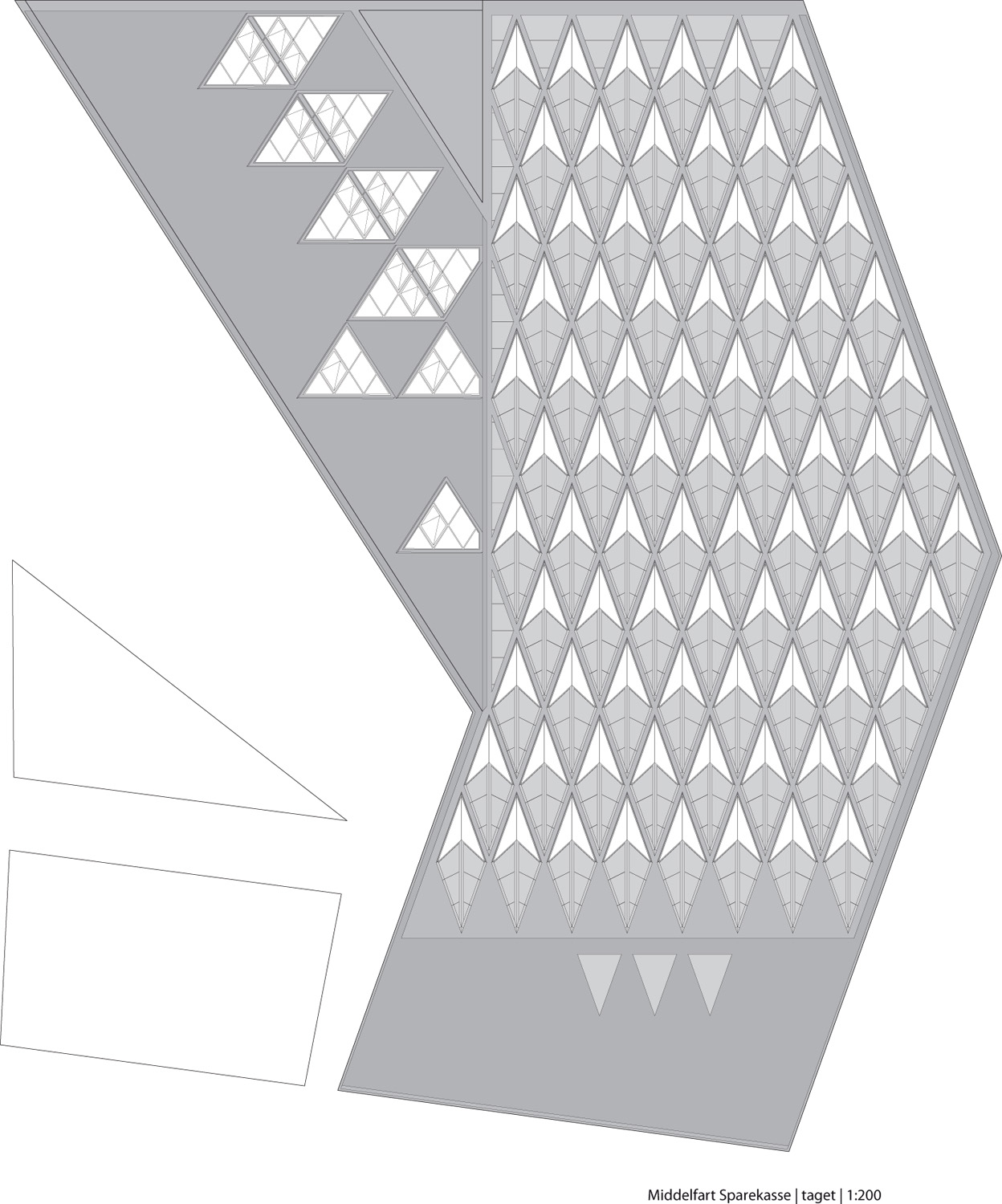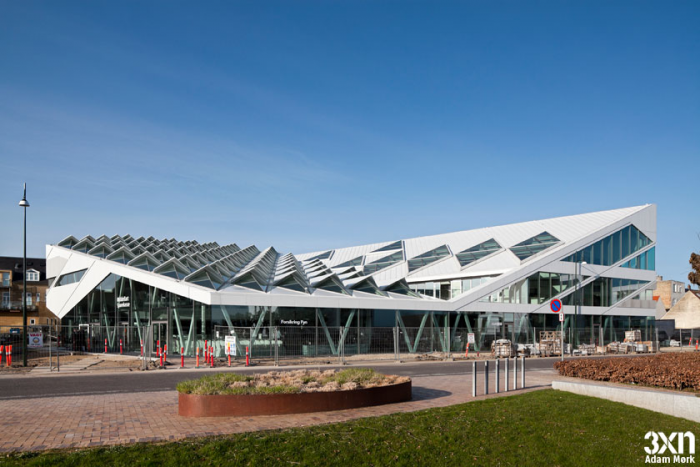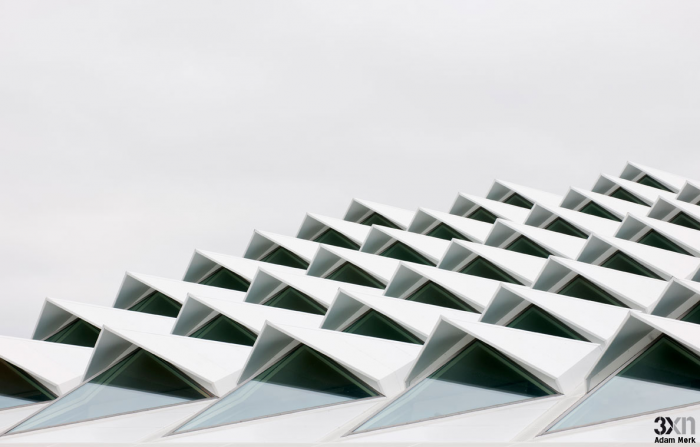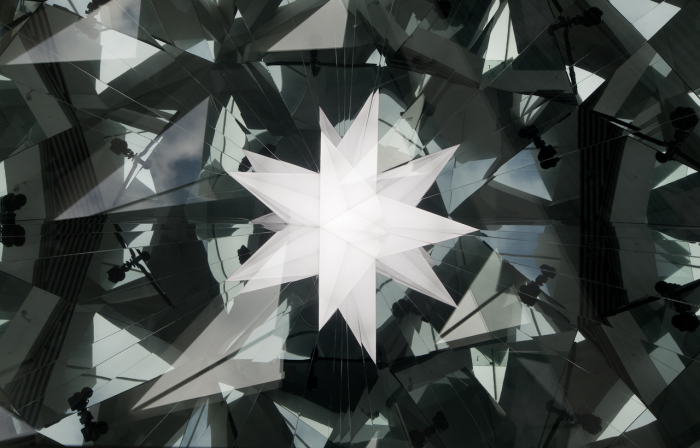In 2005 3XN won the competition to design the Middelfart Savings Bank in Denmark. The building was completed in 2010 with a project area of 5,000 square meters. With this project 3XN had to integrate the bank’s high ambitions while providing a perfect environment for the employees and also positively stress the demand for high architectural quality in the future development along the harbor front. In order to accommodate all the needs the design had to fulfill, the main focus of the project is influenced by making it sustainable.
From the plaza, one enters a large, indoor ‘market place’, the heart of the building. At the entrance level, there is a bookshop, a café and a real estate agent, and the cash desk. The rest of the bank’s area is spread at a series of terraces with open connections to the plaza and to each other. The terraces are then connected by spacious staircases that provide a good potential for informal meeting. Also within the plaza, internationally renowned artist Olafur Eliasson has an art installation consisting of six ‘shooting star’ kaleidoscopes inspired by the triangular geometry of the building that have been lowered into the ground floor of granite.
As can be seen from the images, one large roof covers all the functions inside the building and consists of 83 prism like skylights. The roof itself is a large elegant wooden structure that references the maritime environment on the harbor front as well as the surrounding timber framed buildings. The numerous openings serve as a way to direct an abundant amount of daylight into the building and also for direct views out to sea, the result creating a light and friendly atmosphere.
The comprehensive and holistic sustainable strategy for the building actively implements the latest technologies and sustainable innovations; something that 3XN strives for in all of their projects. This method utilizes the mass and ability of concrete to adjust the room temperature by absorbing and releasing heat made possible by the pre-fabricated concrete decks with embedded plastic pipes. This system allows for a better use of alternative supply sources where it can operate as a low-temperature floor heating system during the winter based upon heat-driven heat pumps, and during the summer use the cool night air, soil tubes, and ground water or sea water for cooling. With this element in place the energy consumption for heating is reduced by 30 percent and the energy consumption for cooling and mechanical ventilation is reduced by up to 85 percent. Another trick this system uses is that it is partly self-regulating, as water for heating and/or cooling is circulated with a temperature only a few degrees from the desired room temperature.
The building is carefully fitted into its context. To one side, the village is respected by following dimensions, scale, and the shape of the roof. Towards the harbor the building retracts and makes way for a new, triangular space that opens for the view. With its central position, it was important to retain a delicate balance with the surrounding city, and in this case the contemporary and well-functioning building is integrated respectfully in the overall picture and landscape.
